Talking Points: March 2020
Posted on 08 Apr 2020 Categories: Blog, Climate crisis, Coronavirus, Local initiatives, Talking Points, The state we want
by Rethinking Poverty
Since the last Talking Points went out, our world has been completely turned upside down. The country is in lockdown. Nothing is certain. March Talking Points is inevitably focused on the coronavirus epidemic. On 16 March Neal Lawson sent an email to Compass members headed ‘This Changes Everything’. And it has. Talking Points will look at how communities and the state are responding – and what all this might mean for the future.
Coronavirus: the community response
Reports of panic buying causing shortages of food for food banks, NHS workers and the most vulnerable notwithstanding, there has been a massive and positive community response to the coronavirus outbreak. Covid-19 Mutual Aid UK is an umbrella organisation supporting thousands of community aid groups across the UK to coordinate care efforts for those most at risk. The first group was set up in Lewisham, south London, on Thursday 12 March, and by Sunday evening there were 300 and by Wednesday the 18th there were 900. The fight against Covid-19 is being waged street by street, writes the Guardian’s Zoe Williams. Members of Nextdoor are now mobilising support, as per the suggestions in a recent blog How can you use Nextdoor to help your neighbours in a time of need?
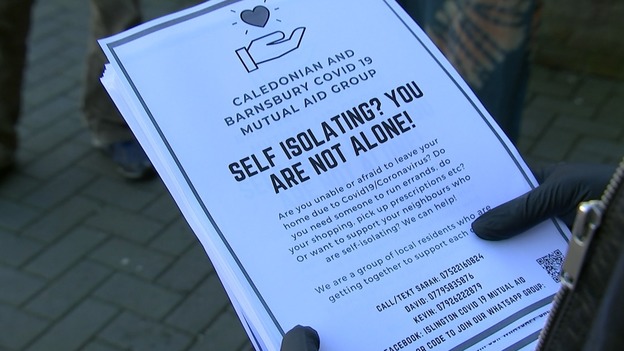
When health secretary Matt Hancock called for volunteers to support the NHS, 500,000 people responded within 24 hours. This volunteer army now numbers 750,000. A group of therapists have formed the Help Hub to offer free online therapy sessions to individuals feeling ‘isolated and fearful’. Newspeak House, Extinction Rebellion and ECOLISE, the European Network for Community-Led Initiatives on Climate Change and Sustainability, are among other organisations offering resources. In an article bringing together a panoply of inspiring responses from around the world, Guardian columnist George Monbiot concludes: ‘The horror films got it wrong. Instead of turning us into flesh-eating zombies, the pandemic has turned millions of people into good neighbours.’
As funders of civil society organisations, charitable foundations have recognised the need to step up. ‘In a crisis like this, the places where we live become more important than ever,’ writes Nicola Pritchard of New Philanthropy Capital. Foundations must support ‘our local social infrastructure’: local charities, local public bodies, and ‘a growing army of mutual aid volunteers’ who together support and protect the most vulnerable. ‘The moment for philanthropy has arrived,’ say Romy Krämer, Graciela Hopstein and Halima Mahomed writing for Alliance magazine. In their view it’s crucial for philanthropy to support social movements, and ‘those individuals and groups who are shaping the discourse’ to ensure we ‘use this as an opportunity to re-evaluate who we are and what really matters’.
Coronavirus: the state response
‘The big state is back,’ says the Economist. What we are now witnessing is ‘the most dramatic extension of state power since the second world war’. ‘The coronavirus is leading to a whole new way of economic thinking’, says Larry Elliott. ‘Never before has the British state agreed to pay the wages of those at risk of losing their jobs. Never before has the government ordered the pubs to shut.’ What is even more remarkable is that this is being done by a government ideologically committed to a small state. ‘The government machine suddenly looks less like the sclerotic inconvenience that annoys people like Dominic Cummings than the most basic means of help we have,’ writes John Harris.
Nor is this the end of it. Supporters of a Universal Basic Income are becoming more vocal. ‘Does coronavirus mean the time has come for a Universal Basic Income?’ asks Ben Chu, writing for the Independent. ‘It’s time to move mountains to protect people – we need universal basic income,’ says shadow education secretary Rebecca Long-Bailey.
Will a new system result?
‘Coronavirus is the greatest challenge capitalism has ever faced,’ says James Meadway (New Statesman). He sees a ‘different version of globalisation’ emerging. Global trade and travel are unlikely to return to former levels. While the formal structures of capitalism – and global trade itself – may have weakened, the volume of cross-border data flows has increased twelvefold since 2008. ‘It is conflicts over the use and control of data for monitoring and regulation of behaviour, extending from the workplace and into wider society, that are likely to inform the post-Covid world.’
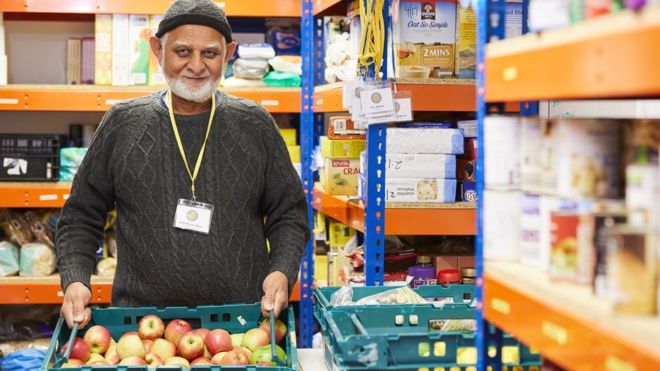
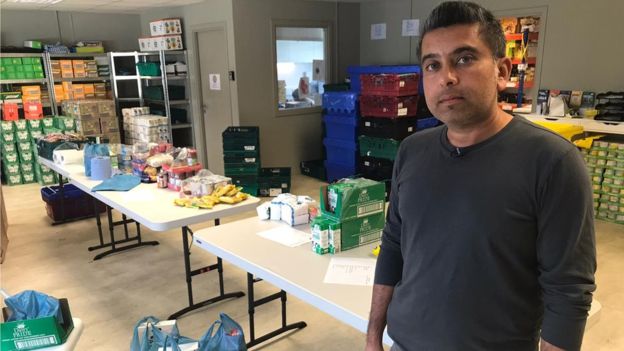
‘What happens to the energy unleashed by the mutual aid societies, the NHS volunteers, the food bank helpers, and to the willingness to upend our lives for the common good?’ asks Kenan Malik (Observer). ‘Who will give shape to the new relationship being forged between society and the state? Once we have stopped social distancing, these are the questions we will need to address in the post-pandemic world.’
‘Maybe we can view our problems as shared, and society as more than just a mass of individuals competing against each other for wealth and standing,’ writes Peter C Baker (Guardian). ‘Maybe, in short, we can understand that the logic of the market should not dominate as many spheres of human existence as we currently allow it to.’
A new role for the state?
No one can deny that coronavirus is having dramatic effects at all levels of society. The big question is whether the changes will last in the long term, and whether they should. Unsurprisingly, Guardian writers tend to see coronavirus as an opportunity for rethinking the role of the state, while the Economist expresses fears that we may not return to ‘normal’. ‘The Covid-19 crisis is a chance to do capitalism differently,’ writes Mariana Mazzucato, author of The Value of Everything. ‘This requires a rethink of what governments are for: rather than simply fixing market failures when they arise, they should move towards actively shaping and creating markets that deliver sustainable and inclusive growth.’ ‘At the end of the second world war,’ says Larry Elliott, ‘the public asked themselves a simple question: if a more interventionist approach was right in wartime, why not try it in peacetime? When the Covid-19 crisis is over, as it eventually will be, they might well ask the same question.’
The Economist, by contrast, warns: ‘History suggests that after crises the state does not give up all the ground it has taken. Today that has implications not just for the economy, but also for the surveillance of individuals … The main defence against the overmighty state, in tech and the economy, will be citizens themselves. They must remember that a pandemic government is not fit for everyday life.’
The importance of community
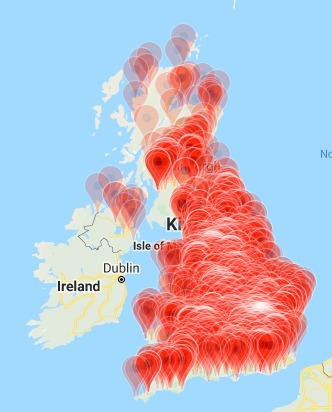
Coronavirus has exposed a desperate need for localism, says Simon Jenkins (Guardian). ‘I believe a new Beveridge might, as did the old one, take our minds off the traumatised present and look to the future. It would ask what are the essential components of what we mean by community, be they social or private enterprise, retail, therapeutic, leisure or cultural. It would consider what regulatory and financial support they need to help keep communities alive as social entities.’
CLES Chief Executive Neil McInroy (Local Government Chronicle) sees the ‘unprecedented interventionist response from the UK government’ as the ‘fledgling, bold, first steps toward a very different and better future. Devolved administrations in Wales, Scotland and Northern Ireland, the English city regions and local government must be bold, take risks and be creative like never before.’
‘After decades of increasing atomisation,’ writes Jack Shenker (Guardian), reflecting on ‘cities after coronavirus’, ‘…the sudden proliferation of mutual aid groups … has brought neighbours together across age groups and demographic divides. Social distancing has, ironically, drawn some of us closer than ever before … City residents are becoming aware of desires that they didn’t realise they had before, which is for more human contact, for links to people who are unlike themselves.’
Does coronavirus offer hope for the climate crisis?
The epidemic provides a chance to do good by the climate, says the Economist. Whether this chance is taken will depend largely on ‘how governments choose to pull their economies out of the hole now being created, which is entirely a matter of politics’. While the easy way to boost countries’ economies would be for governments to throw money at ‘established big industries like energy, transport and construction’, they could instead encourage climate-friendly industries such as solar energy and car batteries; fund research into hydrogen-powered fuel cells; offer ‘cash prizes for ways of making steel and cement without releasing CO2’ and so on’.
‘Though this alone isn’t enough to stave off the climate crisis, the shift in behaviour precipitated by the coronavirus pandemic is, perhaps, a sign that we can all make huge personal sacrifices when faced with a global, existential threat,’ writes Chris Stokel-Walker (Esquire) – a point made by many others, including Andrew Norton in Climate Home News. ‘Acceptance of the need to make sacrifices and accept restraints for both the common good and personal wellbeing could help increase understanding of the huge shifts in regulation and behaviour that are needed to address the climate crisis,’ he writes.
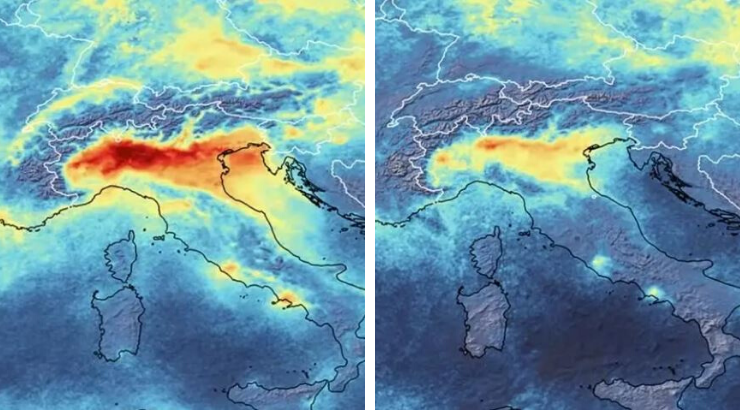
With industry and travel essentially paused, researchers have already seen massive drops in the release of nitrogen dioxide, with parts of China showing pollution levels up to 30 per cent lower than normal. In northern Italy, nitrogen dioxide levels have fallen by as much as 40 per cent. Again, the question is whether these changes will persist when we return to ‘normal’.
But Jason Hickel, quoted in the Guardian, warns that changes are now happening in an unplanned, chaotic way which is hurting people’s lives. ‘What we need is a planned approach to reducing unnecessary industrial activity that has no connection to human welfare and that disproportionately benefits already wealthy people as opposed to ordinary people. There are much more equitable, just and carefully planned ways to approach this kind of problem.’
Posted on 08 Apr 2020 Categories: Blog, Climate crisis, Coronavirus, Local initiatives, Talking Points, The state we want

I would love to think some of these changes will come about, one especially is climate change. However I fear there’ll be many a Capitalist fighting tooth and nail for ‘getting back to normal’. I was particularly interested in local initiatives as I’m currently (as a retiree volunteer) working on engaging and involving people to bring about change in their own communities.